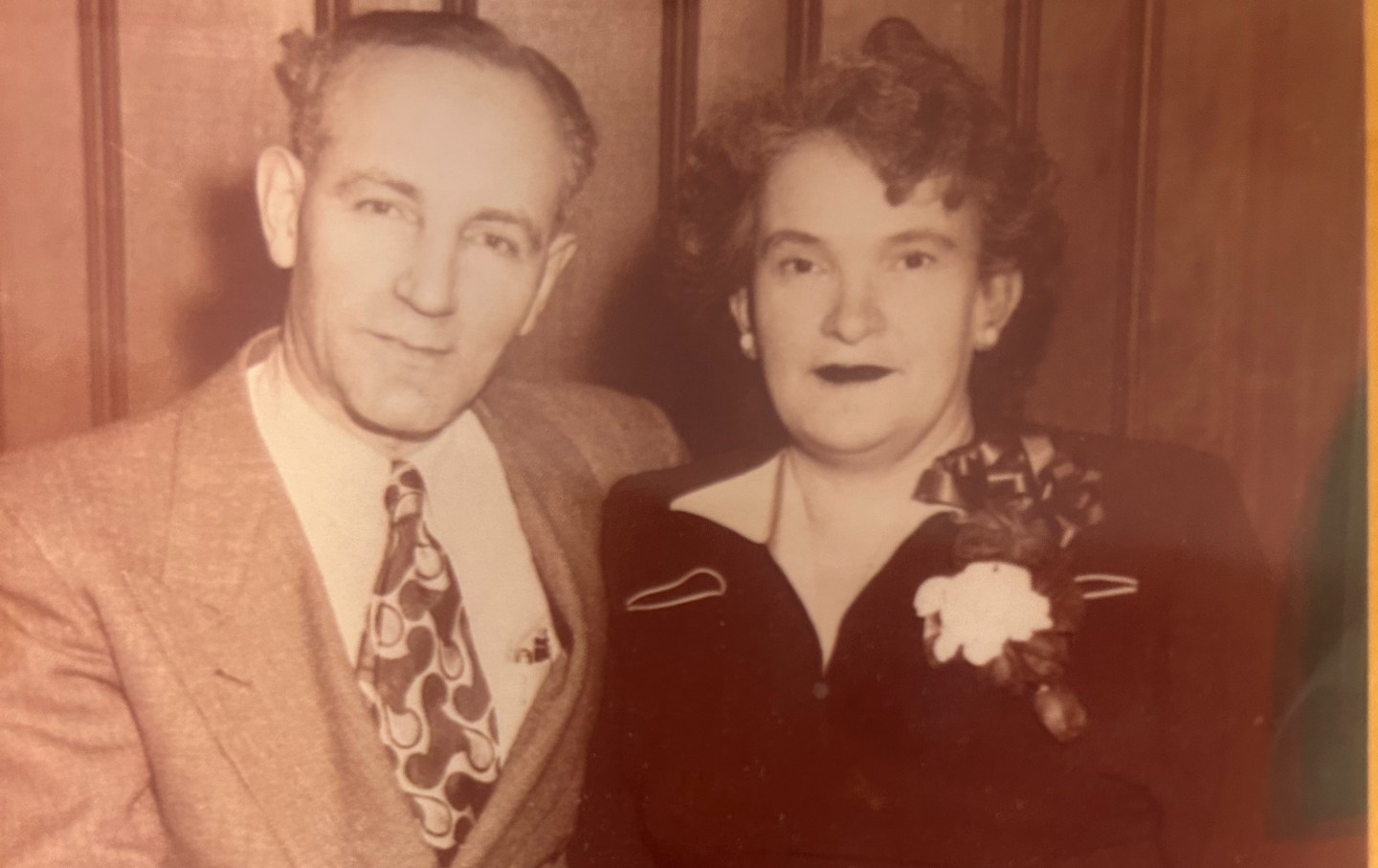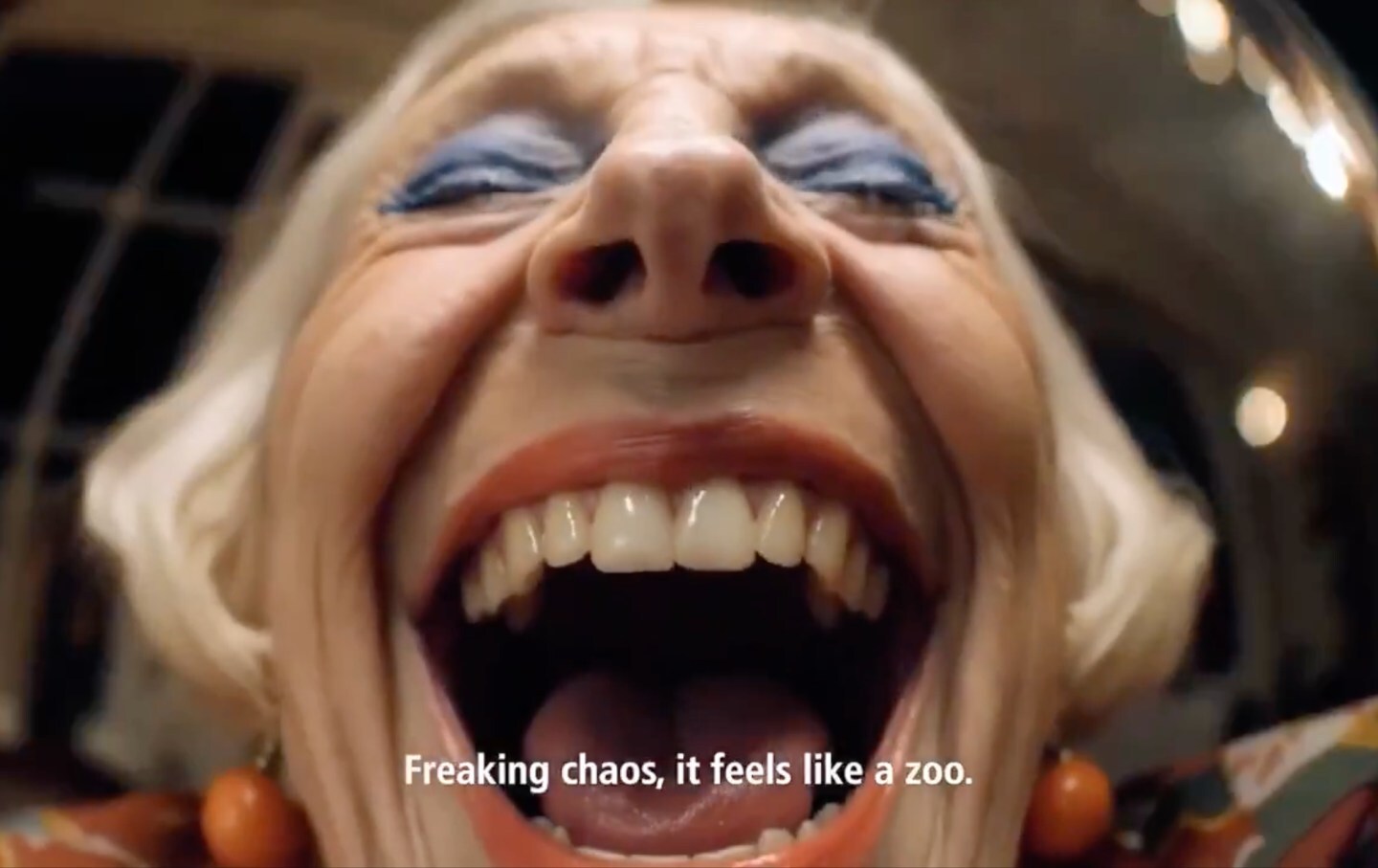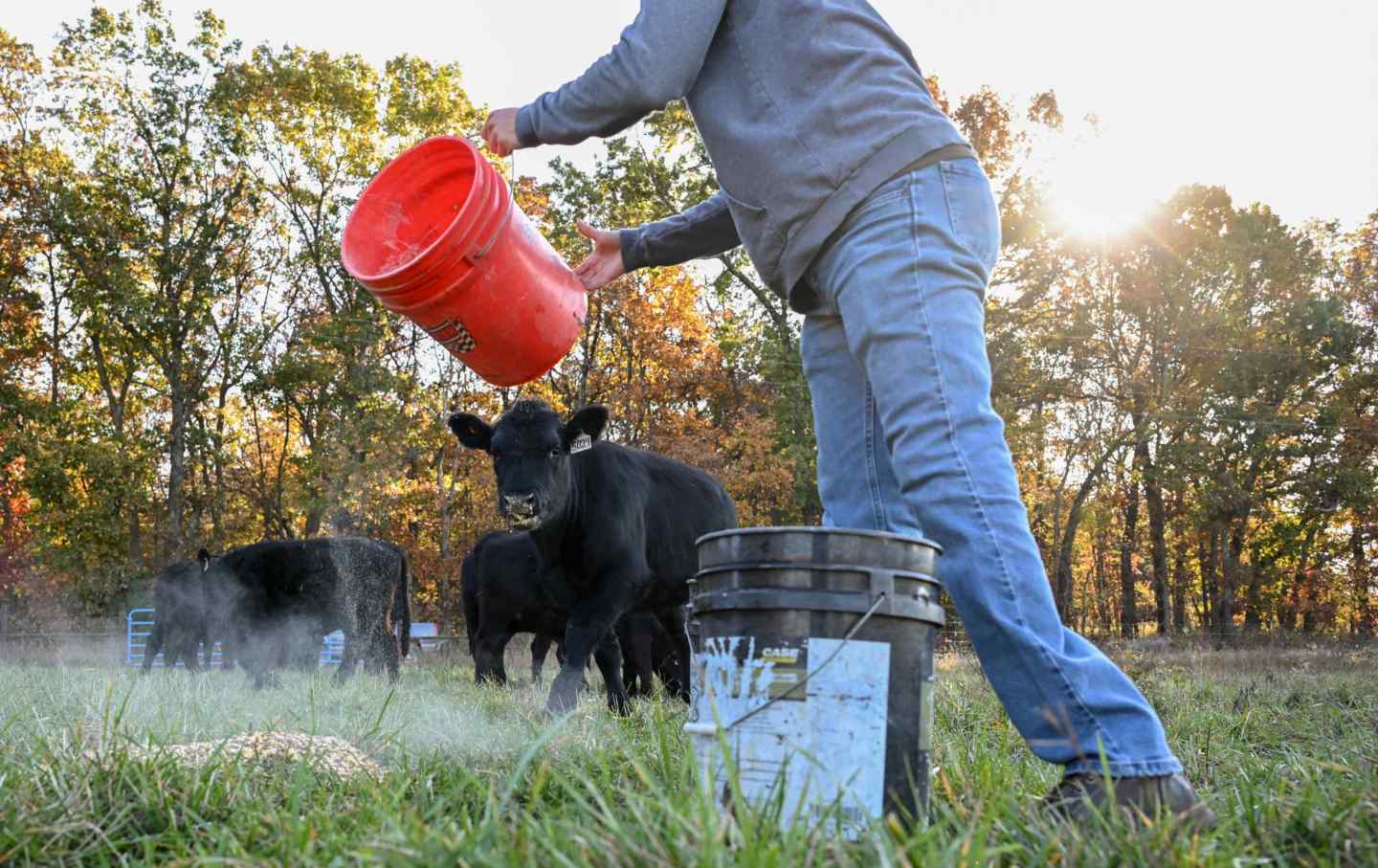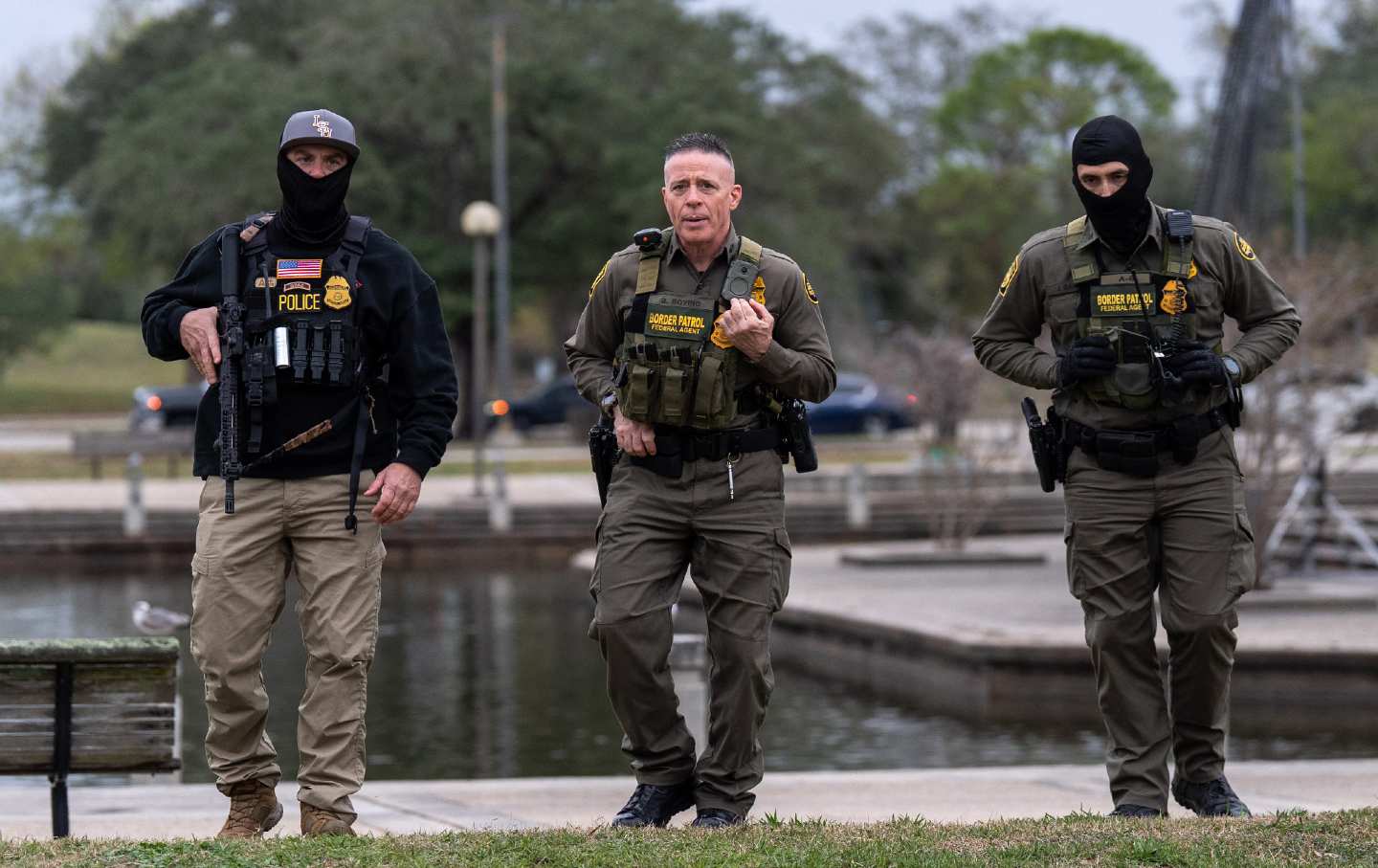“The System Works So Hard to Silence Us Because Our Voices Are Powerful”
An interview with author and activist Michelle Horton about her new book, Dear Sister.

Michelle Horton on Tamron Hall.
(YouTube)In September 2017, Michelle Horton’s life was changed forever when her younger sister, Nikki Addimando, was arrested and charged with killing her boyfriend. That was also when Horton learned about the years of extreme physical and sexual abuse that her sister had endured.
Prosecutors charged Addimando with second-degree murder. Though she testified for three days about the abuse—which included sexual assaults, beatings, burnings, and repeated death threats, the jury convicted her in 2019.
Still, Addimando found a glimmer of hope. That same year, New York passed the Domestic Violence Survivors Justice Act (DVSJA), permitting a shorter prison sentence if abuse played a significant factor in the crime. Addimando’s judge acknowledged that she had been severely abused, but rejected her petition. In February 2020, he sentenced her to 19 years to life.
Addimando appealed and was resentenced to seven years. She applied for clemency, but, despite Governor Kathy Hochul’s repeated vow to prioritize domestic violence, received no response. Addimando was granted parole in November 2023 and was released from prison in January 2024.
Now, Horton, a writer and advocate, has written Dear Sister, a book about these harrowing events. Her memoir is about more than her sister’s victimization by her boyfriend and the State of New York. It’s also about Horton’s efforts to organize a defense campaign in the face of all the state’s machinations.
I spoke with Horton about breaking the silence and organizing against the weight of the state. Addimando also shared her reflections on the importance of support throughout her legal nightmare.
Victoria Law: What prompted you to write Dear Sister?
Michelle Horton: In February 2020, shortly after Nikki was sentenced, a former editor of mine approached me with the idea. She had been following my private Instagram page, which was the only place I felt safe sharing anything (out of fear that my words would be weaponized by prosecutors). She suggested that I had a story to tell—not Nikki’s story but my own. After talking it through with Nikki and getting her consent, I decided that this book could be a step toward my own healing—a way to process what I’d been through, and to also have it witnessed.
VL: You write candidly about not knowing about Nikki’s abuse—and you weren’t the only one. Nikki told you that, often, when people saw her with bruises, they simply asked, “Whatcha do now, clumsy girl?” Looking back, what would you advise people to do if they notice signs of abuse?
MH: First of all, we should all be less dismissive and avoidant. If you do suspect that someone is being hurt, definitely don’t [try to] control what they do; victims have enough of that at home.
Educate yourself on the intricacies of domestic violence and trauma, reach out to your local domestic violence shelter for guidance, and then show up in a way where someone can feel safe sharing with you, if they choose. I know it can feel helpless and scary, so having your own support system is crucial.
VL: Your family received an overwhelming amount of support when Nikki was arrested. How did it grow into a legal campaign?
MH: It started as the kind of small-town support you might imagine after a death in the family—meal trains, envelopes filled with gift cards, expressions of love. That had a buoyancy effect, allowing me to keep my head above water. It was a reminder that there was still goodness in the world. Over time, all of that love transformed into action—people showing up at court dates, speaking up online and in their social circles, and eventually advocating with letters and petitions. The support meant absolutely everything, from the beginning to now.
From day one, a core support team grew around me: A confidante of Nikki’s who had been helping her try to escape, a therapist who had known about the abuse for years, a colleague of mine with connections in the women’s movement space, and three of Nikki’s childhood friends became my sounding board as we all tried to navigate this strange upside-down world of legal consultations and jail protocol. Within the first few months, we became aware of Survived & Punished, which supports women exactly like Nikki—survivors who fight back against their abusers and are punished by the system. They have a tool kit on how to start a defense committee. Suddenly, we had language and structure for the work we had already started doing.
Without that support, Nikki would likely still be in prison. She’d have disappeared into the system like so many do, and I’d be left alone to deal with the complexity and grief of supporting an incarcerated survivor and her children.
VL: How did you manage the tensions of a support campaign—complete with all the media it garnered—with the risks of gag orders, retaliation, etc?
MH: From the very beginning, we had to be strategic. Our earliest efforts, which included fundraising for bail and organizing court gatherings, were done very quietly. We used a private Facebook group, asked people to not share anything on social media, and often operated through word of mouth. Retaliation is a very real risk, and during the most sensitive early months of the case—when the prosecutors and judge had an enormous amount of power—we were extra careful.
Our committee didn’t participate in media until after Nikki’s conviction. Even then, we were strategic about what and how we shared. In many ways, our public efforts did work against Nikki—as if Nikki having all of this support was proof that she could have “just left.” It was painful to have our advocacy efforts weaponized against her.
The reason the system works so hard to silence us is because our voices are powerful. In the end, the only reason Nikki came home from prison is because of a large advocacy network, and the relentless and loud support from her community.
VL: One of Nikki’s friends had the role of a nonjudgmental friend—to check in and give her a safety plan. That’s different than what we typically think friends should do—which is to push victims to leave. Why is that important?
MH: One thing I’ve learned is that you need to meet victims where they are because [they] know their abusers better than anyone. Sometimes what might look like complacency or ignorance is actually a safety strategy. It’s crucial for people to understand that the vast majority of domestic violence homicides happen during or after a victim leaves. As Nikki said at sentencing, “Leaving doesn’t mean living.” We need to believe and support victims, so they feel able to leave on their own terms.
VL: What advice would you give to other family and loved ones of criminalized survivors facing similar situations?
MH: Look to the advocates and grassroots movements that are already in place. We don’t have to reinvent the wheel because there is a long history of advocacy, mostly led by Black women, that we can join and build upon. Keep reaching out. Ask for help and be willing to receive it. And know that there are no easy answers or blueprints to follow. It takes strategizing and endurance.
VL: If we think about what a [stereotypically sympathetic] domestic violence victim looks like—white, non-threatening, no criminal record—Nikki seemed perfect. Yet the jury still convicted her and the judge still denied her DVSJA application. What would you say to other criminalized survivors, particularly those who don’t fit the stereotype?
MH: The idea that there is a perfect victim is a myth—the system can and will find ways to discredit someone with even the most pristine record and outward appearance, like my sister. To other criminalized survivors and their families, know that this is how the system is designed to work—it’s not a reflection of your character; it’s a tactic used across the board.
VL: What does it mean when abuse survivors are up against the same state that failed to protect them?
MH: What I’ve seen time and time again, in both my sister’s case and others, is that when abuse survivors are up against the state, they’re experiencing another version of an abuser. Their truth is diminished, denied, and twisted; they’re demeaned, coerced, isolated, and not only told that no one will believe them, but shown that they are not believed. The court process becomes another environment of punishment and fear, and the entire experience is retraumatizing. Criminalization replicates and perpetuates the cycle of abuse.
Popular
“swipe left below to view more authors”Swipe →The great irony is that this is done by the same system that couldn’t keep them safe from their last abuser. The state says, “If you’re really being abused, reach out to the system to help”—but how can we, in good faith, expect victims to trust in a system that regularly fails to protect them?
VL: Is there anything else you wanted to add?
MH: One thing I wanted to show with my book is how incarceration, and particularly criminalized survival, impacts the children left behind. Kids are treated as collateral damage, and their experiences are rarely considered or understood. Entire families serve prison sentences together, and the impact of incarceration is vast.
VL: Nikki—welcome home. How does it feel to see your life and fight for freedom in print?
Nikki Addimando: While I’m so grateful that people are willing to share parts of my story and talk about these important issues, I also feel guilty at times because there are so many survivors out there who don’t have their stories told. It’s also complicated to have your narrative told by other people, and I have yet to tell my own personal experiences completely.
VL: Your sister spearheaded a relentless freedom campaign. What did it feel like to have her continue that fight for your freedom while you were imprisoned?
NA: There’s very little that I could do to advocate for myself when I was in prison. I had to completely rely on my sister and our community to fight for me. When you’re in prison, it’s so easy to feel helpless in the sense that you have very little control and you’re isolated, so I was fortunate that I had people that I knew were fighting for me. Most people feel forgotten. It can feel impossible to free yourself once the system has you.
VL: What would you say to other survivors facing similar situations?
NA: Remember the truth that you hold within. It may be that people are telling your story and your experiences in a way that maybe didn’t happen, and that’s really unsettling. Reach out to the advocacy organizations that exist, whether it’s Survived & Punished or another grassroots organization in your state, so that you can find a sense of community. We see you. We believe you. Keep fighting for what you know to be true. Nothing is going to change what happened to us or what we’ve done—all we can do is keep fighting for our truth… because nothing changes if we’re silent.
Disobey authoritarians, support The Nation
Over the past year you’ve read Nation writers like Elie Mystal, Kaveh Akbar, John Nichols, Joan Walsh, Bryce Covert, Dave Zirin, Jeet Heer, Michael T. Klare, Katha Pollitt, Amy Littlefield, Gregg Gonsalves, and Sasha Abramsky take on the Trump family’s corruption, set the record straight about Robert F. Kennedy Jr.’s catastrophic Make America Healthy Again movement, survey the fallout and human cost of the DOGE wrecking ball, anticipate the Supreme Court’s dangerous antidemocratic rulings, and amplify successful tactics of resistance on the streets and in Congress.
We publish these stories because when members of our communities are being abducted, household debt is climbing, and AI data centers are causing water and electricity shortages, we have a duty as journalists to do all we can to inform the public.
In 2026, our aim is to do more than ever before—but we need your support to make that happen.
Through December 31, a generous donor will match all donations up to $75,000. That means that your contribution will be doubled, dollar for dollar. If we hit the full match, we’ll be starting 2026 with $150,000 to invest in the stories that impact real people’s lives—the kinds of stories that billionaire-owned, corporate-backed outlets aren’t covering.
With your support, our team will publish major stories that the president and his allies won’t want you to read. We’ll cover the emerging military-tech industrial complex and matters of war, peace, and surveillance, as well as the affordability crisis, hunger, housing, healthcare, the environment, attacks on reproductive rights, and much more. At the same time, we’ll imagine alternatives to Trumpian rule and uplift efforts to create a better world, here and now.
While your gift has twice the impact, I’m asking you to support The Nation with a donation today. You’ll empower the journalists, editors, and fact-checkers best equipped to hold this authoritarian administration to account.
I hope you won’t miss this moment—donate to The Nation today.
Onward,
Katrina vanden Heuvel
Editor and publisher, The Nation
More from The Nation

The Supreme Court v. My Mother The Supreme Court v. My Mother
After my mother escaped the Holocaust, she broke the law to save her family. Her immigration story is more pertinent today than ever before.

The Slop of Things to Come The Slop of Things to Come
This past week boasted many overhyped AI breakthroughs, but the healthiest one was the fierce repudiation of a contemptuous McDonald’s ad.

Keeping the Police Out of Pregnancy Care Keeping the Police Out of Pregnancy Care
We must be vigilant in keeping law enforcement out of exam rooms.

White Farmers Are Getting a Taste of Their Own Medicine White Farmers Are Getting a Taste of Their Own Medicine
Trump’s tariffs and immigration raids are driving the latest farm crisis. White farmers have stood by him year after year—and still do.

The Stagecraft Behind the New Orleans Immigration Raids The Stagecraft Behind the New Orleans Immigration Raids
In a text exchange, Border Patrol Commander Gregory Bovino calls his operation a “massive disturbance” in the making.

“This Is Historic”: FIFA and UEFA Presidents Are Accused of Aiding Israel’s War Crimes “This Is Historic”: FIFA and UEFA Presidents Are Accused of Aiding Israel’s War Crimes
A coming filing with the ICC accuses FIFA’s Gianni Infantino and UEFA’s Aleksander Čeferin of crimes against humanity for their financial support of settlement clubs.


